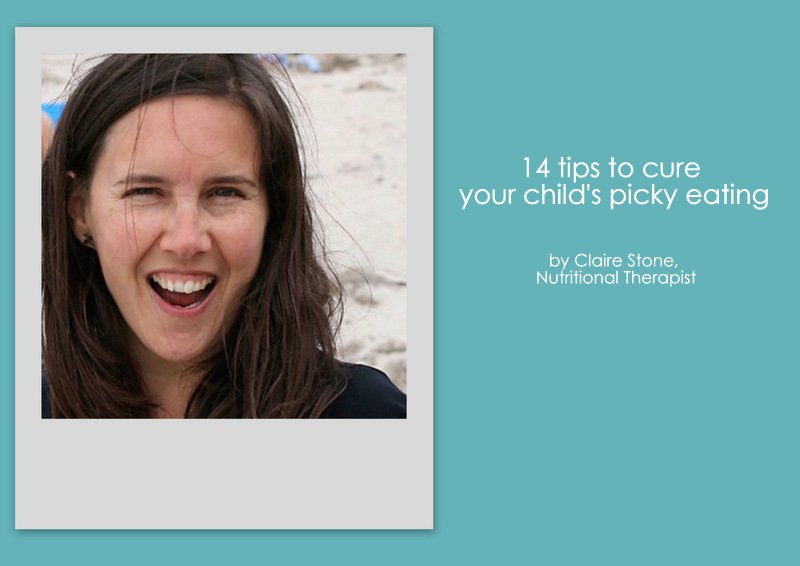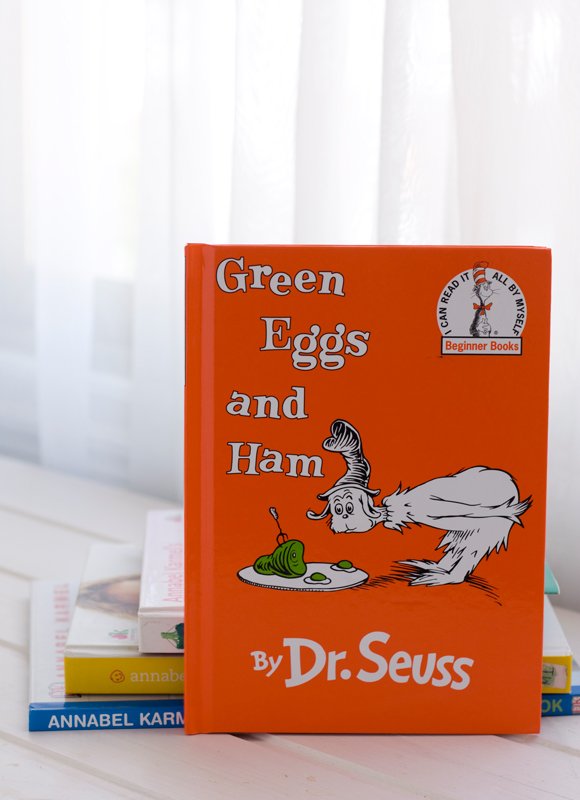Good morning , my name is Marcela, and my children are terribly picky eaters. If any of you knows a support group for mothers of extremely picky eaters, let me know because I would like to join.
Ready for the tips?! Come back tomorrow for the rest of the post and, in the meantime, you may click here to check out Claire’s website- she has a special treat in store for you!
Con sabor latino…
“Buenos días, mi nombre es Marcela y soy la mamá de dos niños terriblemente mañosos para comer”– Si alguno de ustedes conoce un grupo de esos anónimos para mamás como yo, avisenme, porque me gustaría unirme!
Sí, es cierto, Luka y Zoe son TERRIBLES para comer y no es porque yo no haya tratado de que coman de todo. Al contrario, cuando eran chiquitos leí todos los libros y seguí todas las recomendaciones habidas y por haber y, hasta los 18 meses, nos fue de maravillas. La hora de la comida era un verdadero placer, yo preparaba papillas y, luego finger food con frutas y verduras variadas, carnes y todo lo que era bueno y sano y ellos abrían la boca con placer y devoraban hasta las combinaciones más exoticas. Pero fue cumplir el año y medio y pareciera que el monstruo de la mañosidad se apoderó de ellos porque empezaron a rechazar prácticamente TODO. Y yo entré en pánico (qué les doy de comer????). Traté mil y una estrategias y algunas funcionaron con distintos niveles de éxito pero, hasta el día de hoy, confieso que mis hijos no comen ni la mitad de las frutas y verduras que a mí me gustaría. Para ser totalmente sincera, yo tampoco comía demasiado a su edad, pero prometanme que no se los contarán a ellos (mami, te estoy mirando especialmente a vos 😉
Este año decidí que ya era hora de cambiar este status quo y que, para hacerlo, necesitaba ayuda. Y, para eso, contacté a Claire Stone, a quien conocí en Life is Messy Bootcamp. Claire vive en Bristol, Inglaterra, y es nutricionista. Pero no cualquier nutricionista, si no de las que me gustan a mí: ella ve a la comida como una forma de mejorar nuestra salud y nuestra calidad de vida. Claire cree en la importancia de transmitir buenos hábitos alimenticios a nuestros hijos, y entiendo cuan dificil es esto, y cuan confuso es para nosotros, los padres, lidiar con la enormidad de información disponible, que muchas veces es contradictoria. Elegí a Claire para este post porque ella es no sólo una gran conocedora de todos lo relativo a nutrición, sino fundamentalmente porque es amable, graciosa, simpática y comprensiva, cualidades que considero importantísimas al tratar un terreno que suele activar como pocos otras la tan odiada culpa maternal.
Si ustedes, como yo, tienen a un niño mañoso para comer en sus vidas, creo que les encantará el post de hoy. Y si ya han pasado por esto y sus niños, que algún día fueron mañosos, hoy comen de todo, me encantaría leer las estrategias que usaron y les dieron resultado, así que por favor, compartanlas con todos nosotros en los comentarios!
Ahora las dejo con Claire:
1- Conozco a muchas mamás que están, como yo, estresadísimas respecto a la alimentación de sus hijos. ¿Te ocurre lo mismo, al ser mamá Y nutricionista?
Ser mamá es dificil, no saber qué darles de comer a tus hijos, no sabér a ciencia cierta qué deberían comer y qué no, especialmente cuando lo que ellos quieren comer es exactamente lo opuesto a lo que uno quiere darles.
Ser nutricionista Y mamá es aún más dificil, me parece. Yo vivo en constante batalla interna, con una parte de mí queriendo que mis hijos puedan unirse a la diversion de comer chocolates en pascua mientras la otra parte de mi cerebro impide que los deje tomar gaseosas a menos que no haya ninguna alternativa (y siempre hay alternativa porque llevo en mi cartera jugos de fruta para que éstas nunca falten).
Es dificil porque podría llegar a estresarme cada día pensando que no comen la suficiente cantidad de comidas ricas en enzimas, a la vez que me preocuparía excesivamente por la presión de otras personas para darles “un gustito”. Pero no me quejo, porque en realidad sé que la tengo facil: miro la comida que consumen y sé inmediatamente que están bien, y a la vez puedo saber inmediatamente qué hace que mi hija tenga dolor de oido (trigo) y qué quieren comer cuando se sienten enfermos (brotes de lentejas verdes)
2- ¿Son tus niños mañosos para comer?
Honestamente, mis hijas aman las ensaladas. Sí, es cierto. Tambien se vuelven locas por las nueces y semillas y piensan que una galletita casera hecha con miel y canela es un gusto delicioso. Me acosan para que les de algo de comer mientras cocino, y se van contentas de la vida cuando les doy una rama de brocoli para que esperan hasta la cena. No me estoy mandando la parte, es así y estoy sumamente agradecida al respecto porque sé que esto puede cambiar en cualquier momento. Este es el estado actual de las cosas- y estoy muy feliz de que así sea porque de lo contrario me sentiría una pésima nutricionista.
Ahora bien, esto no quiere decir que mis hijas coman absolutamente todo lo que les pongo enfrente. La mayor no prueba nada que sea especiado y la menos puede detectar una pizca de zapallito en un galón de salsa para pasta en medio segundo. Y creo que los niños están en su derecho de tener su opinion y que nosotros tenemos que respetar esto.
Hasta cierto punto.
3- Esa es la clave ¿verdad? Ese punto de inflexión, entre lo que permitimos como parte del desarrollo de la propia personalidad y lo que no ¿Donde está la línea roja entre lo que concedemos y aquello que no?
Los niños tienen que poder ser capaces de elegir, dentro de ciertos límites. Si los dejas elegir su comida sin ningún tipo de guía terminarás comiendo solo papas fritas, hamburguesas y tortas y luego tendrás muchas mas cosas de las que preocuparte, al menos por un tiempo. Si, en cambio, puedes guiarlos para que ellos tomen decisiones adecuadas, podrás tenerles confianza cuando elijan una comida y no otra. El alimento que afecta más el sentido del gusto en los niños es el azucar. Ella literalmente poluciona sus papilas gustativas de tal manera que hace casi imposible que les guste algo que no sea dulce. Piensa en ello. Los niños necesitan energía para crecer. El azucar es energía pura y ellos están programados para que les gusten los alimentos energeticos. El brocoli es energía pero tambien muchas cosas más, pero la energía del brócoli no llega a las papilas de la misma manera que el azucar. Así que cuanto más alejada puedas mantenerte de esta última, y de los endulzantes artificiales, menos tendrás que lidiar con mañas a la hora de comer.
4- Hablemos de los niños extremadamente mañosos. ¿Cómo hacemos con los niños que se niegan rotundamente a comer y comienzan a perder peso?
Esta es una figurita dificil, porque todos sabemos que los niños tienen que crecer y, cuando no lo hacen, nos ponemos muy pero muy nerviosos. Lo primero que hay que tener en cuenta en estos casos es que si un niño no está ganando peso esto puede deberse a diversas razones que nada tengan que ver con su mañosidad. Como padres, tendemos a sobre preocuparnos acerca de la comida, principalmente porque, contrariamente a nuestros niños, hemos perdido el instinto al respecto. Si tu hijo no come nada, no entres en pánico porque ellos lo van a notar y eso no ayuda. Lo segundo que hay que considerar es qué es aquello que nuestros hijos comen cuando comen- y no tanto qué no comen. Frecuentemente los niños picotean comida aquí y allá durante el día y eso hace que no tengan hambre a la hora de las comidas principales. Si tus niños han tenido un cambio de rutina ( por ejemplo durante las vacaciones escolares, puede ocurrir que estén comiendo varios snacks y por eso no tengan hambre cuando tu pretendes que la tengan. Y si la comida que tu les ofreces no está dentro de sus preferidas, posiblemente tengas dificultades para convencerlos de comer. Por ello, de ser posible, reducí los snacks para que tengan hambre a la hora de comer. Si a pesar de eso, tu hijo no come mucho, no entres en pánico tampoco. Cuando los niños no se sienten bien suelen perder el apetito. Esto es así para que sus habiles cuerpecitos puedan dedicar toda su energía a combatir la enfermedad en lugar de utilizarla en comer. Cuando esten enfermos, ofreceles comida pero no te preocupes demasiado si no comen, porque tan pronto como se recuperen , su apetito saltará hasta el techo y te sentirás muchísimo mejor.
Si aún asi tu hijo no come nada, hay tres posibilidades más que debes descartar:
1- Si acaba de pegar un estirón, puede que no necesite mucha comida en este momento. Ofrecele comida pero no te estreses si no la come.
2- Puede estar constipado, lo que hace que no tenga hambre o que no quiera comer para no tener que ir al baño. Si esto es una posibilidad, consulta con el pediatra o con una nutricionista.
3- Puede haber algo más que necesite una consulta con el pediatra. No te preocupes demasiado tampoco, porque la mayor parte de las veces se trata de cosas simples que una simple visita al médico soluciona.
5- ¿Cómo comenzamos a introducir alimentos en el caso de aquellos niños que se niegan a comer frutas y verduras? ¿Hay algun alimento en particular que debamos priorizar?
Ajá, excelentes preguntas. Es muy facil pensar demasiado en esta clase de problemas. Nuestros cuerpos necesitan una enorme variedad de nutrientes (algunos aun no descubiertos) y es practicamente imposible cubrirlos a todos. Esto es un hecho. En terminos de alimentación, lo más importante que hay que tener en cuenta es que para crecer los niños necesitan AMOR. Mas que ninguna otra cosa, aparte de agua y oxigeno, necesitan amor. Así que si les estas dando amor (y con esto me refiero a hacer lo mejor que puedes, sea lo que ésto sea, para alimentarlos bien), lo estás haciendo bien.
Lo siguiente que hay que saber es que los niños necesitan una rutina. Y con esto me refiero a la regularidad de saber qué va a ocurrir en lo que se refiere a la comida. Por ello el ritual de sentarse a la mesa es tan importante, especialmente para los niños mañosos. Por ello es importante tratar de establecer una comida en la que toda la familia coma sentada y junta, con todos los miembros tomandose su tiempo para comer, para que los niños aprendan a usar cuchillo y tenedor y puedan disfrutar de esta rutina familiar. Esto no quiere decir que tengas que forzar a toda la familia a alguna rutina loca que cumpla cánones extraños de perfección, pero si tu hijo sabe cuando y cómo va a comer en lugar de ver a mamá intentando desesperamente que coma cualquier cosa cuando te pide porque estas preocupada, entonces comenzará lentamente a asociar estos horarios con la idea de comer. Que quede en claro que no estoy diciendo que tengas que obligarlo a comer todo el plato si no tienen ganas, porque lo que importa es la rutina, la camaradería, la idea de familia tomandose el tiempo de comer junta lo que es más importante que la comida en sí. Si esto no es posible, intenta al menos que las comidas de tus hijos sigan alguna clase de patrón regular, como por ejemplo, que ellos pongan la mesa, o sirvan un vaso de agua, etc.
Finalmente, en lo que hace a los alimentos en sí, ten en cuenta que nuestros cuerpos ansían naturalmente alimentos frescos, especialmente en la primavera. Entonces asegurate de ofrecerles al menos algo fresco en cada comida: fruta, verduras, nueces o semillas, lo que te parece que pueda atraer a tu hijo. Y repito: no te hagas problema si no lo come. Sigue ofreciendoles algo fresco que, si ven que tu lo comes con gusto y alegría ( Si tu no lo comes, intenta educar tus propias papilas primero), tus hijos te seguirán más tarde o más temprano. Dicho esto, intenta de verdad no preocuparte demasiado porque, por ejemplo, durante largos tiempos en mi infancia yo sólo queria comer bastoncitos de pescado, papas fritas y porotos cocidos. Mi mamá no estaba contenta, claro, pero se aseguraba de incluir una zanahoria cruda en mis comidas y eso era suficiente.
Por otro lado ¿has notado como los niños suelen ser mañosos cuando comen con gente que no son sus padres? Esto no se debe a que estan con amigos o a que la comida es diferente, si no a que no tienen encima de sí a un padre estresado observándolos y rogando que coman esa arveja que tienen en el plato. Yo sé, por ejemplo, que suelo resistirme a hacer cosas que otros me dicen que TENGO que hacer, e imagino que a los niños debe pasarles lo mismo. Ellos sienten que quieres que coman sus verduras aunque no digas palabra. Por eso, si estas teniendo verdaderas batallas campales a la hora de la comida, intenta ver si alguien mas puede estar con ellos a esa hora (Se que parece extremo, pero mi sobrina come de todo cuando está conmigo, pero con su mamá se rehusa a probar ninguna verdura. Y esto no es porque yo tenga cualidades especiales, es sólo porque no soy su mamá!)
¿Estan listos para los tips?! Mañana publicaré la continuación de esta entrevista con Claire (los 14 tips propiamente dichos), así que no dejen de pasar por aquí! O bien, pueden suscribirse en el formulario de abajo de este post, y yo les avisaré por email cuando esté listo! Mientras tanto, pasen por la página de web de Claire porque ella tiene un regalito para mis lectores (la lista de sus libros de nutrición favoritos!).
Nos vemos mañana!



Que buena nota Marce!!!
I was thinking about this the other day, and wondering, without any *real* scientific basis if fussiness in children could be because some vegetables (broccoli, dill, endives, aubergine) can have rather strong flavours, that they just can’t tolerate?
I remember growing into liking things like beet but it’s still not my favorite, and I would not eat it as a child.
The tips on routine sound great, on family time. My mom would just forbid snacking and if you did not finish your food and wanted a snack you had to eat that.
But what struck me the most is how sugar affects our taste buds. I see that happening in us, as I try to minimize sugar (going completely sugar free is not going to happen, if it’s forbidden I crave it even more). It is our one downfall. I am working on having 1 tsp of sugar on our black tea instead of two, or on drinking herbal teas (which I can handle without sugar). I do love black tea, so it’s an every now and then treat. I am trying to find a replacement for breakfast, I normally have some tea + toast and jam / honey / lemon curd peanut butter and a fruit.
And with granola / oatmeal, I also tend to want sugar. It is difficult (honey / syrups also cause an insulin peak, so I count those as “sugar” too). Do you have any suggestions?
Reduce until you can eliminate and try to replace by healthier versions, such as date paste, whenever you can. Once your taste buds get used to living without sugar (or with healthier, naturally occurring ones) you won’t crave it anymore. It’s a process. As for oatmeal/granola/mueslix, I find that adding raisings, dates and fresh fruits covers my sweet needs…but I have been in this path for a while.
Above all, give yourself some time and be kind to yourself in the process 🙂
Qué bueno que te guste! 🙂